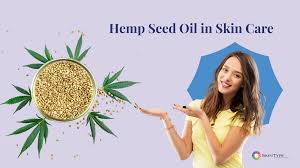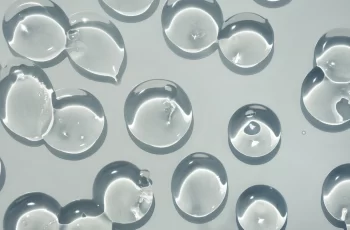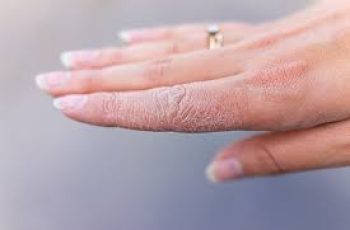
The Science of Hemp Seed Oil in Skin Care Products
With the growing popularity of hemp seed oil in skincare, many people are curious about the potential benefits of using hemp seed oil in their skin care routine. Hemp seed oil contains active compounds like essential fatty acids and vitamin E that may offer hydrating, anti-inflammatory, and antioxidant properties. This article will explore what is currently known about hemp seed oil, and help you decide if its right for your skin! To get started, take the Baumann Skin Type quiz by clicking the button below!
What is hemp seed oil?
Hemp seed oil is extracted from the seeds of the hemp plant, Cannabis sativa. Unlike marijuana, hemp contains very low levels of THC, (the psychoactive compound that causes a “high.”) Hemp seed oil contains little to no THC. It has been used for centuries for cooking, industrial applications, and even skincare. With the recent boom in CBD beauty products, hemp seed oil has also gained popularity for its potential skin benefits.
What is hemp seed oil made of?
Hemp seed oil contains a unique composition of fatty acids and plant compounds, including:
Essential fatty acids: Hemp seed oil is rich in polyunsaturated fatty acids like linoleic acid (omega-6) and alpha-linolenic acid (omega-3). It contains only about 10% saturated fatty acids such as palmitic and stearic acid. When applied topically, these fatty acids help reinforce the skin’s barrier.
Vitamin E: A powerful antioxidant that may protect the skin from damage caused by free radicals and pollution.
Proteins and minerals: Hemp seed oil contains smaller amounts of proteins, magnesium, potassium, iron, zinc, and calcium.
Phytocannabinoids: Trace amounts of aromatic compounds produced by the hemp plant, such as cannabidiol (CBD) and tetrahydrocannabinol (THC). Hemp seed oil contains very low levels of CBD and THC compared to other cannabis extracts. Cold pressing and refining hemp seeds removes nearly all CBD and THC. So hemp seed oil will not cause psychoactive effects.
Terpenes: Hemp seeds contain terpenes like beta-caryophyllene that may have anti-inflammatory and antiseptic properties when applied topically.
Phenolic compounds: Hemp seeds are a source of phenolic antioxidants like ferulic and vanillic acid that can protect skin from premature aging.
Chlorophyll: Hemp oil contains small amounts of chlorophyll from the seeds, which may have cleansing and healing effects on the skin.
While hemp seed oil comes from the cannabis plant, the refinement process removes nearly all THC and CBD. The fatty acids and Vitamin E remain the primary active compounds making hemp seed oil potentially beneficial for skin health and appearance.
benefits of hemp seed oil
Benefits of hemp seed oil in skin care
With its high concentration of fatty acids and polyphenols, using hemp seed oil may offer these benefits for skin:
Moisturizing dry skin: The unsaturated fatty acids help the skin retain moisture and prevent trans-epidermal water loss. This helps hydrate dry, flaky skin.
Reducing acne: The linoleic acid in hemp seed oil has anti-inflammatory properties. Applying hemp seed oil to acne may calm redness and swelling.
Anti-aging function: The antioxidants like vitamin E scavenge free radicals that contribute to signs of aging like fine lines and dark spots.
Soothing skin conditions: People with psoriasis, eczema, and dermatitis may find topical hemp seed oil reduces itchiness, scaling, and rashes.
Improving skin barrier: The omega fatty acids help reinforce the skin’s protective barrier to lock in moisture and prevent irritation.
Risks and potential side-effects of hemp seed oil
Hemp seed oil is safe to use in skin care products, and safe to use on your face if it fits into your skin care routine. Organizations like the Environmental Working Group (EWG) rate hemp seed oil as a safe and sustainable ingredient.
While hemp seed oil is not usually considered an irritant, there are some potential side effects to consider:
Allergic reaction: Those allergic to cannabis or plants in the same family could react to topical hemp oil.
Blocked pores: Hemp seed oil does contain a very small concentration of palmitic acid, a comedogenic compound. If you are extremely sensitive to acne, this ingredient has a chance to clog your pores. Most skin types are not likely to get acne from hemp seed oil, especially when used properly in your regimen.
Spoiling: Hemp oil has a relatively short shelf life. Skin care products are less effective past their expiration dates.
Is CBD oil different from Hemp seed oil?
CBD (cannabidiol) oil from hemp has also grown in popularity for skincare alongside hemp seed oil. While both of these ingredients come from cannabis plants, they do not come from the same parts of it. CBD is extracted from the flowers of the cannabis plant, it interacts with the body’s endocannabinoid system to reduce pain and inflammation.
Hemp seed oil is extracted by pressing the seeds of the cannabis sativa plant. The seeds are high in fatty acids that nourish and moisturize skin, and do not contain CBD or THC.
Organic vs non-organic hemp seed oil
When shopping for hemp seed oil, you may come across organically grown options. Organic hemp oil comes from plants grown without pesticides or chemicals. Though more expensive, organic hemp seed oil eliminates the risk of skin irritation from chemical residues. However, non-organic hemp oil that tests free of contaminants can still be a high-quality option.
hemp seed for different skin types
Hemp seed oil for different skin types
With its lightweight texture and mild aroma, hemp seed oil can suit most skin types. Some examples of skin types that could benefit from hemp seed oil products are:
Dry skin
Hemp seed oil is a great choice for dry skin. The unsaturated fatty acids reinforce dry skin’s protective barrier to prevent water loss. They also moisturize the skin without a heavy, greasy feel. Hemp seed oil may help flaky, itchy, dehydrated skin retain moisture, and help your skin glow.
Oily skin
As long as you are not extremely prone to acne, hemp seed oil is a safe choice for moisturizers on oily skin types. It has a very low concentration of heavy saturated fats. If your skin is extremely prone to acne, you should typically avoid most oils in your skin care products unless they’re marked specifically for use in acne care. Otherwise, the anti-inflammatory compounds may help calm acne redness while keeping skin hydrated but not greasy. Hemp oil provides just the right amount of moisture for most oily skin types without clogging pores. Its linoleic and alpha-linolenic fatty acids reduce inflammation caused by breakouts.
Oily skin types should wash off their oil based products with water and a cleanser after applying.
hemp seed oil for antiaging
Aging skin
Hemp seed oil is a good ingredient to include in anti-aging products.
Antioxidants like Vitamin E protect mature skin against wrinkle-causing free radicals. It’s also able to stimulate collagen production which minimizes the appearance of fine lines and wrinkles. Like all anti-aging ingredients, hemp seed oil is most effective at fighting wrinkles when combined with other anti-aging ingredients like exfoliators, retinoids, peptides, or others.
Sensitive skin
Hemp seed oil is unlikely to cause irritation for those with sensitive skin. The soothing fatty acids present in the oil reinforce the skin barrier and relieve inflammation. Hemp oil is useful for sensitive skin prone to redness, itchiness, and other kinds of inflammation. It is considered a very gentle oil.
Is hemp seed oil right for your skin type?
Considering hemp seed oil for your skin care routine? Get personalized guidance for your unique skin needs by taking the Baumann Skin Type Quiz. This free quiz analyzes your skin goals, lifestyle factors, and symptoms to determine your specific Baumann Skin Type.
You’ll receive targeted product recommendations suited for your skin’s needs. Optimize your skincare routine by determining your Baumann Skin Type today.


